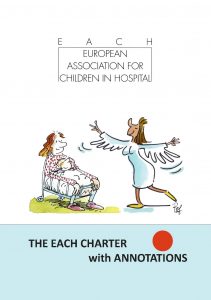
The Academy of Medical Sciences has released a stark report highlighting wide-ranging evidence of declining health among children under five in the UK and calls on policymakers to take urgent action to address the situation.
Entitled ‘Prioritising early childhood to promote the nation’s health, wellbeing and prosperity’ the report warns Government that major health issues like infant mortality, obesity and tooth decay are not only damaging the nation’s youngest citizens and their future, but also its economic prosperity, with the cost of inaction estimated to be at least £16 billion a year.
In recent years, progress on child health in the UK has stalled. Infant survival rates are worse than in 60% of similar countries and the number of children living in extreme poverty tripled between 2019 and 2022. Demand for children’s mental health services surge and over a fifth of five-year-old children are overweight or obese, with those living in the most deprived areas twice as likely to be obese than in affluent areas. One-in-four is affected by tooth decay. Vaccination rates have plunged below World Health Organization safety thresholds, threatening outbreaks. Issues such as the COVID-19 pandemic, increased cost of living and climate change compound widespread inequality and are likely to make early years health in the UK even worse.
‘Prioritising early childhood to promote the nation’s health, wellbeing and prosperity’ outlines a gathering crisis across the early-years – from pre-conception through pregnancy to the first five years of life. It highlights that this entire period, often overlooked in policy, the health service and research, is crucial for laying the foundations for lifelong mental and physical health as healthy children are more likely to grow into healthy, productive adults.
Child health experts from across the UK produced the report, which includes perspectives from parents and carers with lived experience. Chaired by Professor Helen Minnis FMedSci and Professor Sir Andrew Pollard FMedSci, the group examined the positive impact of intervening in the early years on the health and future of the nation.
Drawing on an extensive body of evidence, the authors make five recommendations for governments and policymakers to urgently start addressing the issues raised. These include:
- Implementing effective early years interventions to improve child health and wellbeing and promote research to identify further approaches.
- Establishing a unifying vision across Government for the early years to coordinate policies and resources.
- Addressing the decline in child and family health workforce and fragmentation across sectors to deliver effective services.
- Improving collection and access to data on the wider determinants of child health to enable research and policy implementation.
- Ensuring diverse voices of children, parents and carers are represented in developing early years policies and interventions.
While stressing that no single age period determines health outcomes, the report presents robust data showing that frontloading investment in the earliest years, including preconception and during pregnancy, delivers lifelong benefits by establishing healthy foundations to reduce the risk of complex health issues. Early childhood is a cost-effective time to intervene compared to opportunities later in life.
Report co-chair, Professor Helen Minnis FMedSci, said: “Every child has the right to a safe and healthy childhood. It is shameful that the UK is failing to provide this. Child deaths are rising, infant survival lags behind comparable countries and preventable physical and mental health issues plague our youngest citizens. The science is clear – we are betraying our children. Unless the health of babies and young children is urgently prioritised, we condemn many to a life of poorer health and lost potential. The time to act is now.”
Report co-chair, Professor Sir Andrew Pollard FMedSci, said: “There are huge challenges for the NHS today driven by the growing pressures on health and social care from an ageing population. Even more disconcerting is the evidence cited in our Academy of Medical Sciences report of an appalling decline in the health of our children, which makes for an even more bleak outlook for their future. There is clear evidence in the report that tackling childhood health conditions, addressing inequalities and providing early years social support can change the future of health and prosperity. It is time for big thinking and clear strategy by Government to protect the health and life chances of our children today and transform the future of our nation.”
UNICEF UK endorsed calls for early intervention. Claire O’Meara, Director of Advocacy (Interim), The UK Committee for UNICEF (UNICEF UK), said: “The first few years of a child’s life are vital for their development. This critical report further strengthens evidence that investment in this age group leads to huge lifelong benefits to children as well as economic benefits to wider society. It also makes it clear the Government needs to act on this evidence now to reverse already worrying declines in children’s health outcomes. UNICEF UK is calling on the UK Government to implement a National Baby and Toddler Guarantee to ensure every child is supported to thrive now, and for the future.”
The Royal College of Paediatrics and Child Health also welcomed the review. Dr Mike McKean, Vice President for Health Policy of the Royal College of Paediatrics and Child Health, said: “This report provides alarming evidence that the UK is failing too many of its children. We are presiding over a crisis in child health that demands urgent action. As paediatricians, we witness daily the devastating consequences of these systemic failures. Without transformative intervention on child health, we condemn generations to a poorer future. The time for excuses is over – government must act decisively to address this crisis.”
